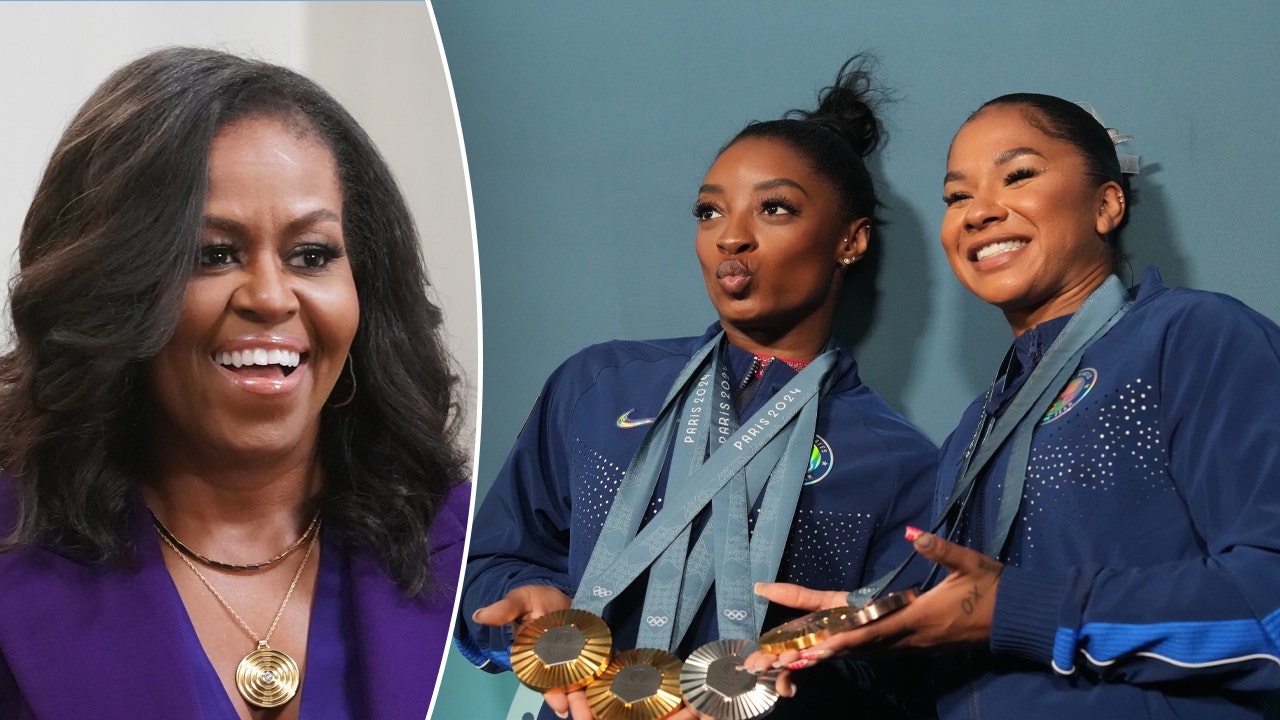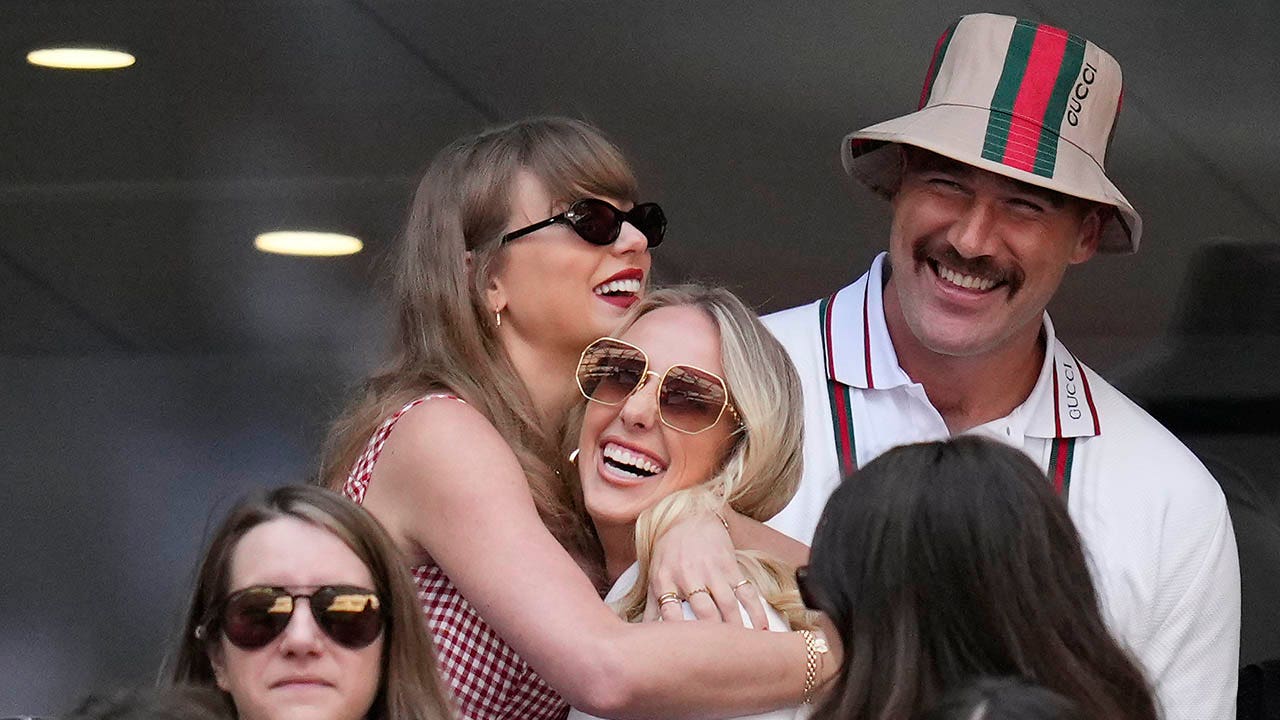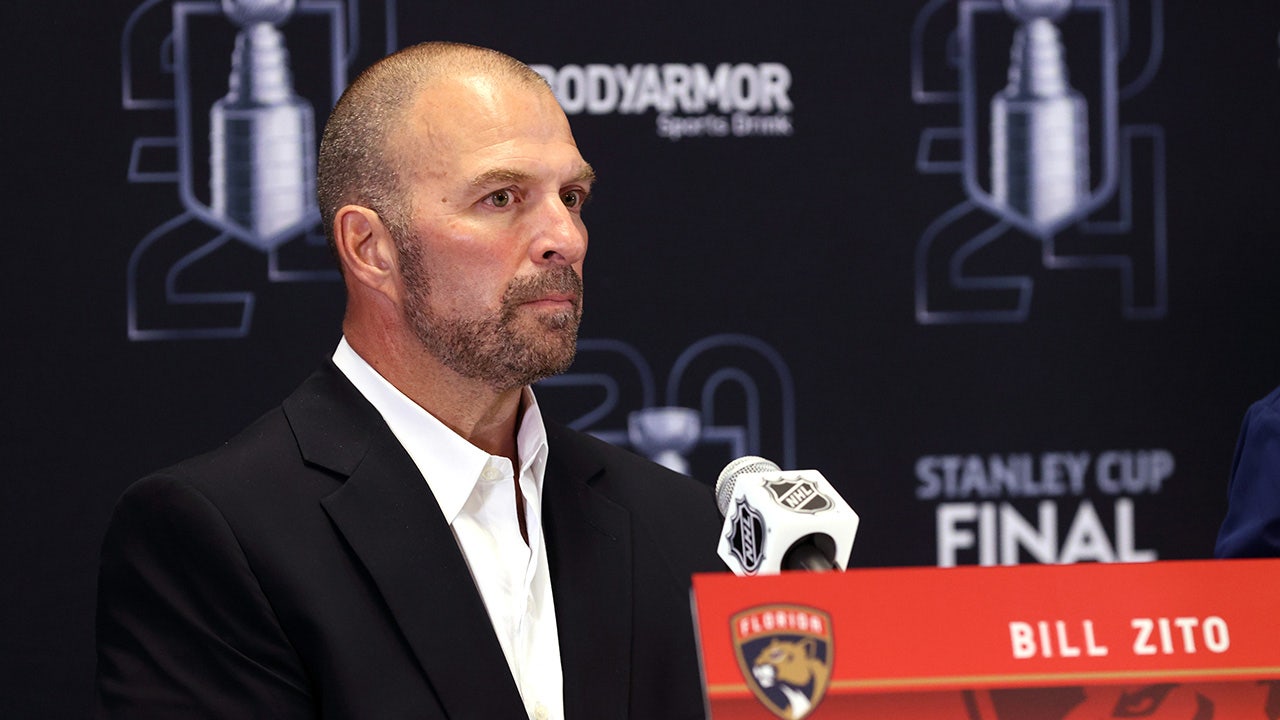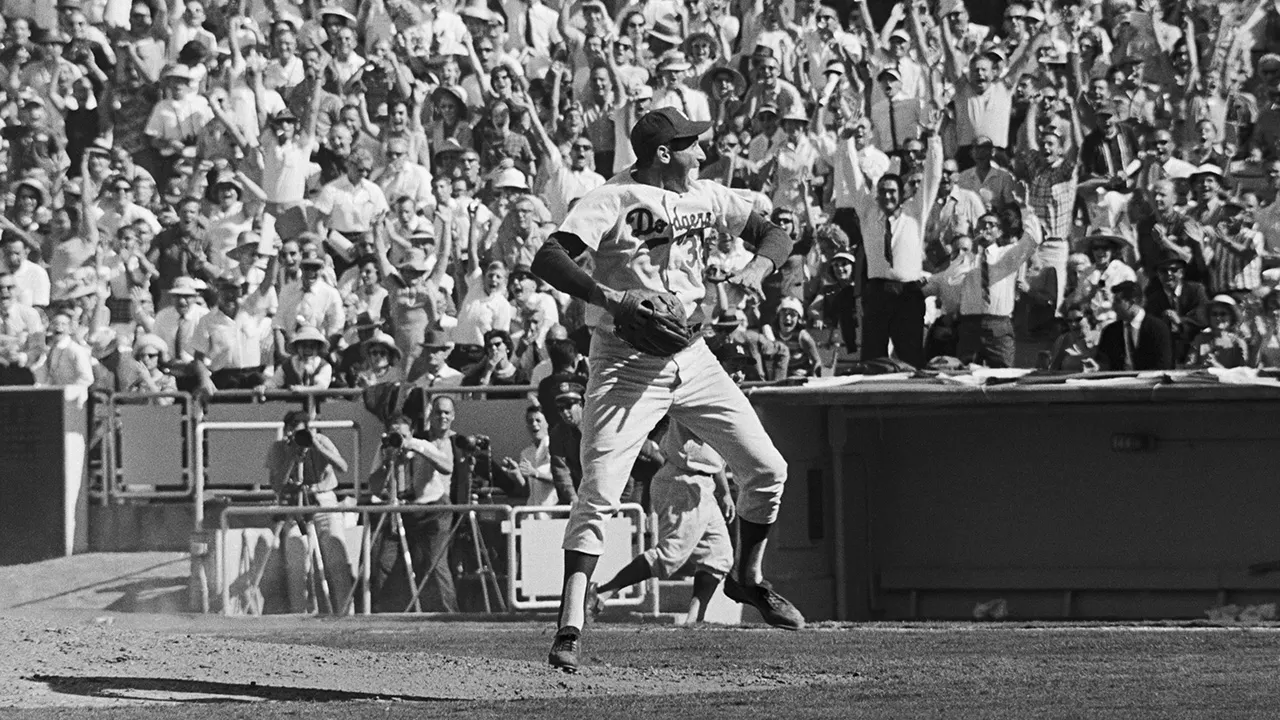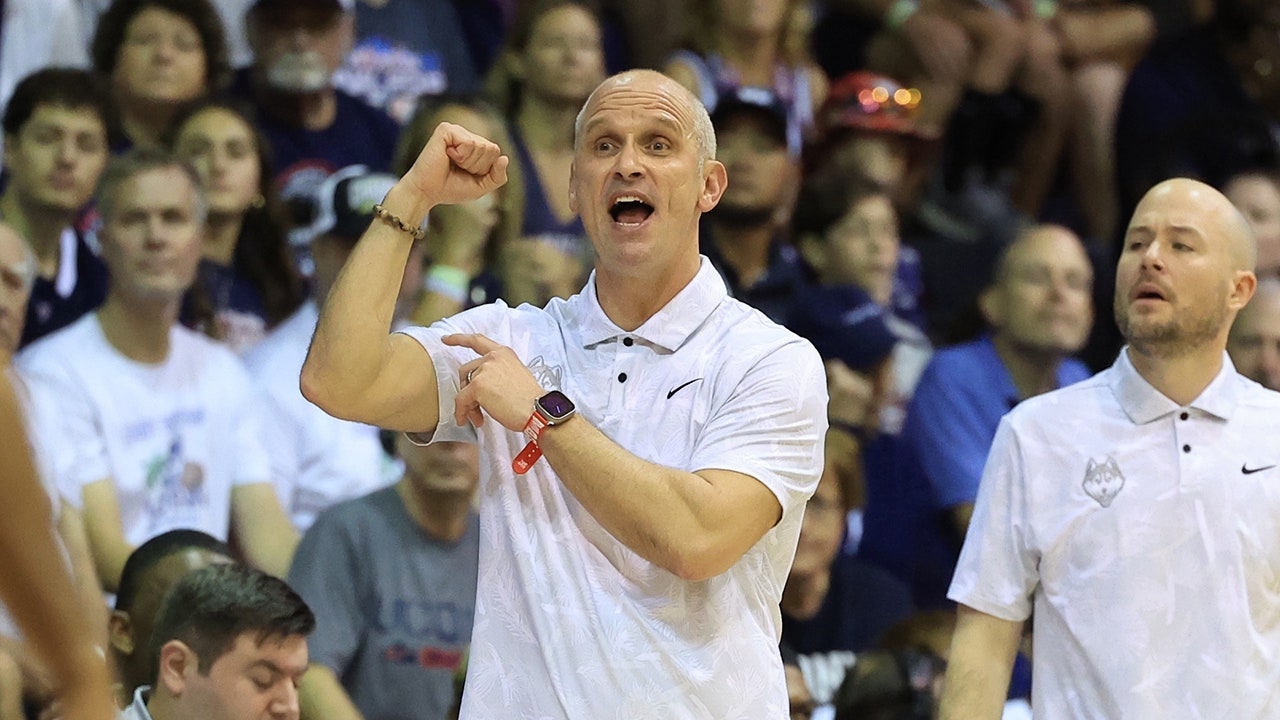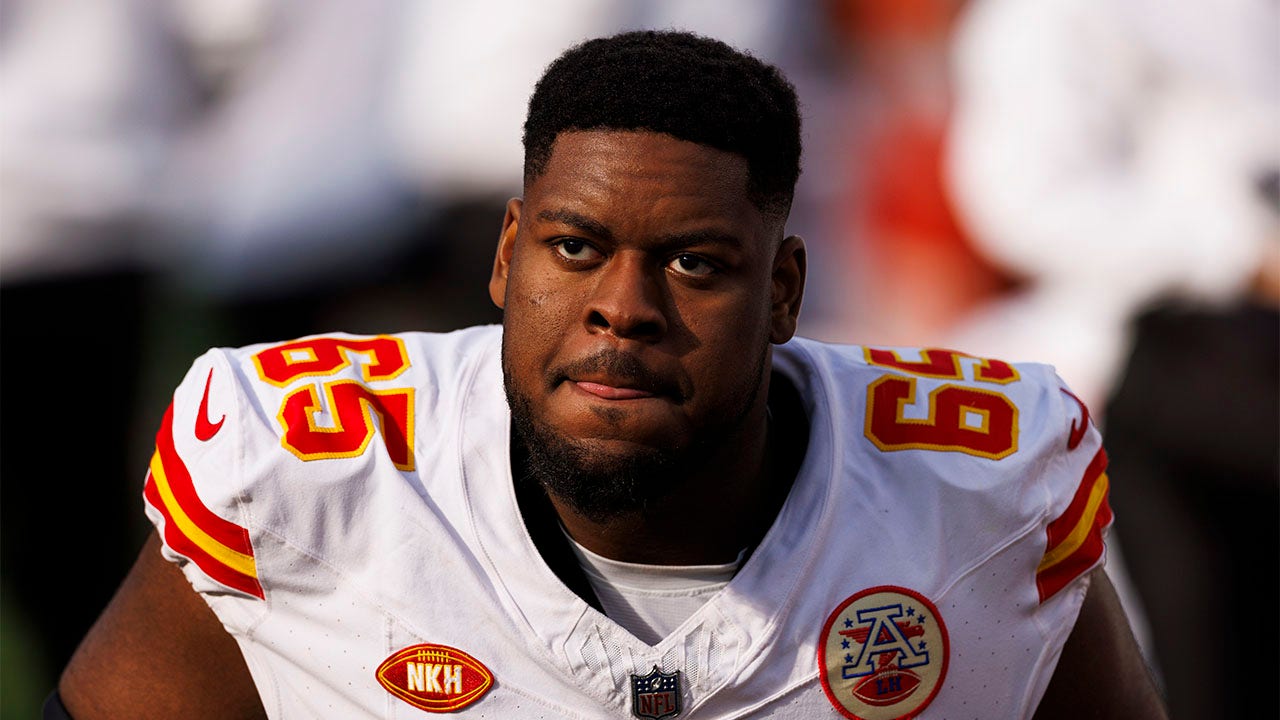It was nearing 11 p.m., the end of a long, arduous day that brought to an end the long, arduous Olympic trials that, for Sunisa Lee, served as the culmination of a long and impossibly arduous journey back to herself. Still shaking her head in disbelief and near teary-eyed that a double-barrel diagnosis of dueling kidney diseases had not ended her return to the Olympic Games, Lee sat at a dais wearing her new fit — the official white warmups for the 2024 women’s gymnastics Olympic team. In front of her sat an assemblage of standing-room-only media.
Midway through her news conference, Lee was asked about the people who had helped her find her way back to competition. “I would say my doctor, Dr. Faustin,” Lee began, glancing to her left, toward Dr. Marcia Faustin, the co-head team physician for USA Gymnastics, seated near the front of the room.
Faustin attempted to make herself invisible by pretzeling into a fetal position, or at least as near as one can get to the fetal position in a folding chair. She covered her face with her forearms and wound her long legs up toward her chin, as if they could act as armor and deflect the curiosity as every person in the room turned their attention in her direction.
“The joke on the team is I’m never embarrassed. Like ever,” Faustin said via video call three weeks later. “They’re always asking me, ‘Do you ever get embarrassed?’ Well, they found it.”
Decidedly committed to staying behind the scenes, Faustin has, in the course of the last Olympics cycle, been pushed a bit out of the shadows. She shepherded Simone Biles through her decision to withdraw from the Olympics in 2021, and this year, helped Lee navigate her kidney disease and return to competition. Now she will be on the floor when the two most recent Olympic all-around gold medalists lead the competition in Paris. The attention, while perhaps not welcomed, is warranted.
It was, after all, a team doctor who abused his power, access and station to destroy the trust and psyche of hundreds of athletes in his care. Faustin, along with her co-team physician Dr. Ellen Casey, has worked hard to restore it.

Suni Lee competes on the balance beam during the final day of the 2024 U.S. Olympic gymnastics trials in Minneapolis. (Elsa / Getty Images)
Three years ago, as the floor exercise score for Brazil’s Rebecca Andrade flashed on the screen, Lee put her hand to her mask-covered face in disbelief. She was the all-around Olympic gold medalist. Three weeks ago in Minneapolis, Lee made the same motion, covering her mask-less mouth with her hand. She was a member of the 2024 Olympic team. This time, she cried in disbelief.
“This one feels so different,” she said later of her return to the Games. “We didn’t even think I’d be here. Everything has been hitting me like a freaking roller coaster. I haven’t stopped crying since, and I’m so happy because there were many times I thought about quitting and walking away from this sport because I didn’t think I’d ever get to this point. I didn’t want to let myself down, and I’m so grateful I had people around me who kept me motivated and helped me through all the hard times.”
Even before that awful day in February 2023, when she woke to weirdly swollen ankles, Lee struggled with her self-worth. The gold medal, the one she was so proud to earn, often felt more like an albatross. She returned from Tokyo to all the trappings of fame that Olympic glory brings, but sometimes she felt like an impostor. Her all-around title came without Biles, who had withdrawn from competition, an asterisk more than a few social media commentators were happy to point out. She hoped college would offer a degree of normalcy. Instead, at Auburn, her celebrity made going to class difficult, so she pivoted to online learning, and her success brought with it an unreasonable level of expectation. Nothing less than a 10 felt good enough.
And then came the worst of it. The swollen ankles, hand and face, the search for a diagnosis and weight gain. Doctor visits, specialists, medication cocktail experimentation, diet restrictions, all while the calendar flipped relentlessly, and Paris edged closer and closer. “She was dealing with an illness that, for most people, wouldn’t allow them to go out for a walk in the park,” Faustin says. “It was incredibly, incredibly difficult. In the beginning, we weren’t even thinking about gymnastics. We were thinking about what her life could be.”
Along with her technical expertise and elegance in competition, Lee’s best attribute always has been her feistiness. She arrived at Jess Graba’s Midwest Gymnastics as a precocious 6-year-old with too much energy and a backyard balance beam that could no longer contain it. Graba learned quickly that if Lee set her mind to something, she usually would accomplish it. But the kidney disease robbed her of that confidence. The same body Lee spent a lifetime manipulating into flips and twists and contortions felt foreign. Lee always believed in a Graba truism — hard work beats talent when talent doesn’t work hard. Suddenly she felt like she didn’t have either. “We were all kind of fumbling around with it in the dark, trying to figure it out,” Graba says.
Faustin, based in California, where she is the co-head team physician at UC Davis, stayed in close contact with Lee, Graba and the entire medical team. She knew Lee was fighting mental demons every bit as disabling as the physical challenges she’d been handed — the self-doubt coupled with crippling pressure to perform.
Three years earlier, Faustin sat at the epicenter of that same conflict, as Biles struggled with the twisties. It was Faustin that Biles spoke to after failing to complete her highly skilled vault, and it was Faustin that escorted Biles off the competition floor, as she contemplated her next step. And it was Faustin who Biles later thanked on social media.

Simone Biles sits with Dr. Marcia Faustin at the Tokyo Games in 2021. (Robert Deutsch / USA Today Sports)
That is no small thing. One month after she came home from Tokyo, Biles testified before the Senate Judiciary Committee that she believed USA Gymnastics had failed to protect her and other gymnasts from Larry Nassar. Yet in Tokyo, faced with inarguably her most difficult decision in competition, it was Faustin who was there for Biles. “Dr. Casey and I have really pushed to look past gymnastics, and treat them as human beings,” Faustin says. “We try to garner that trust and get them to understand that we know there is more to life than gymnastics, that there is life after gymnastics. We want them to push their boundaries, but with what they want to do in life, instead of everyone else telling them what to do.”
Faustin comes to such an understanding naturally. She is a former Division I athlete and a Black woman in a field where less than 3 percent of her peers look like her. “There is such a positive impact you can have on people,” she says. “But it’s hard, and some days it’s really hard, because sometimes the world is not always so kind.”
Faustin grew up in suburban Chicago. Her parents immigrated to the United States from Haiti, and pushed their children to seek success. Faustin’s father, Genser Loiseau, presented Faustin and her three sisters with one simple ultimatum: After school, they could work, or they could play a sport. She chose sports.
At Sandburg High School, Faustin competed in volleyball, gymnastics and track. She loved gymnastics most but her lanky frame had other ideas. Faustin liked track the least — “No one ever says, ‘Let’s go for a run for fun,’” she jokes — but that same body worked well in track. By the end of her high school career, Faustin qualified in 15 of the 16 possible events for state championships, and parlayed her skills into a scholarship to Loyola-Chicago.
She intended to major in nursing, but the clinical rotations didn’t work with her track schedule, so Faustin pivoted — to pre-med. More than once, Faustin jammed her exams into one or two days so she could head out for a meet. But the combo didn’t seem to hurt her. Faustin won eight Horizon League high jump titles, set indoor and outdoor school records, a conference outdoor record and was named Loyola’s female scholar-athlete of the year in 2007. After graduation, she attended the University of Chicago Pritzker School of Medicine.
Faustin split her residency and internships between family medicine and sports medicine, finding in the crossover the holistic approach she thought athletes needed. “A lot of people think sports medicine is just musculoskeletal,” she says. “They think about your knees, your joints. I always wanted to take care of the whole person.”
In January of this year, doctors cleared Lee to compete. It did not mean she was ready to compete. “I wasn’t sure I was good enough,” she says. Graba was purposeful. He encouraged Lee to worry less about hitting a routine and take pride in simply completing one. Some days it worked; other days, it all felt patronizing. She was, after all, an Olympic gold medalist in the all-around and he was asking her to celebrate a participation trophy.
Eventually, they met in the middle. Graba encouraged Lee to concentrate on the apparatus she liked best. Though an exceptional all-arounder, Lee is especially gifted on the uneven bars and beam, and because they came more easily to her, they stoked her confidence. She even experimented with a release move — a full-twisting layout Jaeger — that no one else was even trying. If she could land it in competition, it would be named after her. It became the literal thing Lee reached for, her ability to grab that bar becoming a sort of brass ring of its own.
By February, Lee felt strong enough to compete at Winter Cup. She said all the right things, that she was happy to simply be competing again, but she wanted what she wanted. She wanted to nail that signature move. She did so repeatedly in practice but fell on meet day, and it unmoored what remained a pretty shaky foundation. Lee looked agitated when she headed to beam, and sure enough, she fell there, too, scoring a 12.900 and opening the doors to her nagging doubts again.
But over the next three months, her body started to feel familiar. It did what she asked it to do. At the Core Hydration Classic in early May, Lee competed well — she won the beam — and felt closer to her old self as she prepped for the U.S. championships three weeks later. The stakes were high — the championships serve as the qualifier to trials — and so when Lee stumbled on her approach to her vault and fell, it could have been Winter Cup all over again.
Instead, after dashing back into the tunnel to collect herself — and get a pep talk from Biles — Lee moved on to the bars and nailed her set. Her 14.500 tied the best score of the day. “Going through that fluke, weird incident, it helps me a lot knowing I can come back from that and stay focused,” said Lee, who finished fourth in the all-around to officially earn a spot on the national team and a place at trials. “I don’t need to be perfect to get where I want to be. It was a reminder to go out there and do my normal.”

Suni Lee celebrates after her bars routine at the U.S. Olympic gymnastics trials in Minneapolis. (Elsa / Getty Images)
Lee initially thought her best shot to make it to Paris was as an event specialist. But injuries to Shilese Jones and Skye Blakely opened the door at trials, and Lee barged in. She nailed a stunningly difficult and yet beautiful bar routine, sending her on the way to a second-place finish behind Biles in the all-around final, and securing her spot on the team.
Lee will have to qualify to have a shot to defend her gold medal — only two women from each country make the all-around final — but her versatility gives her a very good shot.
After she was formally introduced as a 2024 Olympian to the Target Center crowd in her hometown of Minneapolis, Lee was asked how she was feeling. She started to speak and then stopped, so overcome with emotion that she had to step away from the microphone. While teammate Jordan Chiles wiped her tears and ensured her mascara didn’t run, Lee covered her mouth with her hands and choked out a few sobs. “I can’t believe I’m here,” she said.
On the floor, Faustin watched, nearly in tears herself. “She’s a warrior,” Faustin says. “What she’s come out of, and what she’s doing just tells us we should never box humans in. We should allow them to flourish and hold that hope for them.”
Faustin naturally deflects any credit for her role in Lee’s recovery. While she did not “cure” Lee any more than she cured Biles three years ago, her athletes know she was monumental in their recovery, and now their success.
“She was constantly checking up on me, making sure I was OK,” Lee says. “She reminded me of my worth because she knew I’d be so disappointed in myself if I gave up this dream. And look at where we are right now. We made it. We did it together.”
(Illustration: Dan Goldfarb / The Athletic. Photo of Suni Lee, Laurence Griffiths / Getty; photo of Dr. Marcia Faustin, Jed Jacobsohn / Associated Press)

